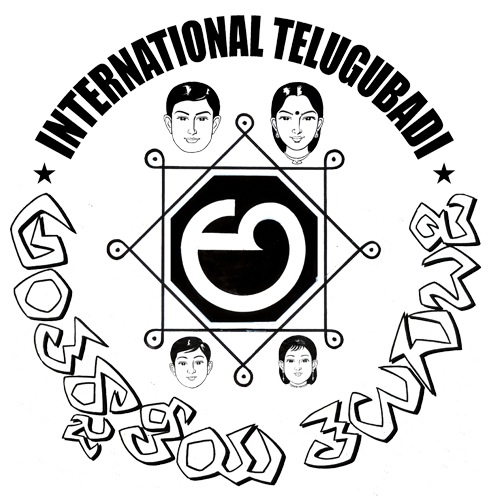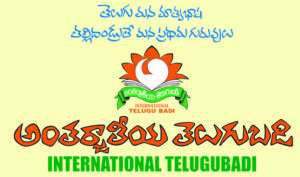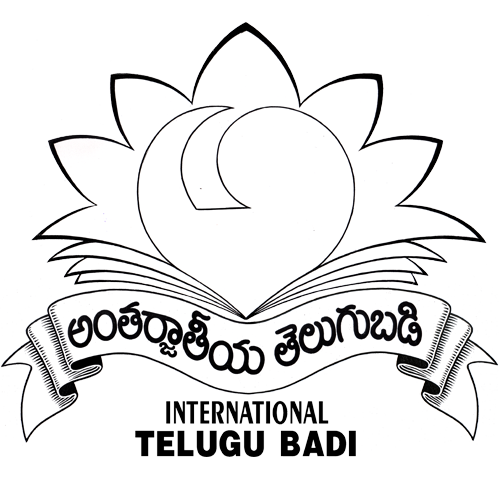Beginnings
Salutations to our Teachers!
Thanks to the enthusiastic students, energetic parents, language loving parent teacher volunteers, ever encouraging supporters and friends of International Telugu Badi. This seed of learning and teaching Telugu Language was planted after landing in USA almost 3 decades ago. It was very encouraging to see a few language and culture schools in some cities around the country, run by several community service volunteers trying to propagate our cultural roots and share the linguistic fruits with the next generations.
After observing and volunteering in some of these efforts, the lack of support in terms of the availability of structured teaching material, adoption of modern methods vs following only the traditional procedures, and difficulty in learning & teaching were clearly evident. We wanted to design a systematic teaching methods supported by structured syllabus, blending the traditional content and adopting the modern processes & tools for learning & teaching Telugu Language & Culture.
We can expect to “See” and “Hear” Telugu language back home in Andhra Pradesh and Telangana (then unified states) through Newspapers, Magazines, Radio, T.V., Family & Friends but, in a country where we now call our home, it is hard to anticipate the same, at the same level, unless everyone makes a conscious & sincere effort. Also, growing up here, our kids lose the context and nativity of Telugu Language & Culture. The responsibility lies on parents to create an encouraging environment to learn Telugu through a firm commitment starting at home, by making phone conversations with grand parents & relatives, and encouraging & participating in Telugu discussions at social gatherings, saahitya sadassulu, avadhaanamulu and other literary events with family & friends.
Providing the context to the content and adopting the content to reflect the new nativity helps. We can teach the alphabets “a” (అ) & “aa” (ఆ) with corresponding words such as “amma” (అమ్మ) & “Avu” (ఆవు) alongwith “aTlAMTA” (అట్లాంటా) & “AsTin” (ఆస్టిన్). Adopting successful internationally recognized creative learning & teaching methods such as the use of practices and tools like Phonetics based learning, Kumon practices, Montessori principles, Project Management concepts, Organized/Structured Development theories, and encouraging Logical Analytical thinking are some of the unique techniques we successfully adopted for International Telugu Badi.
Learning Telugu script through English transliteration (English alphabet with simple keyboard extensions and no special characters/special symbols), verbally expressing in English mixed with Telugu to start with, using audio-visual aids and adopting technology like internet, fonts, iPhones, iPads, communicating through Social Media (WhatsApp, FaceBook) and virtual / online learning tools such as Zoom, Google Meet, WebEx, Teams etc. are easier steps to learn Telugu as a 2nd or third language in a non-native land. Leading by Example and paying personal attention to each student’s learning level/potential, setting goals and achieving milestones always helped the process.
We’ve developed our own structured “amtarjAtIya bAla Siksha®” syllabus for learning Telugu language to suit the progressively increasing learning levels of the students. As parent teacher volunteers, we made strong commitment that we converse in Telugu at home, encourage our kids to do the same. We’ll create a conducive language learning environment for our kids. We value our culture and respect our elders. We’ll commit ourselves to our kids’ success. In order for these fruits of International Telugu Badi to reach wider audiences, the effort needed to be run as a non-profit, cooperative and community service program. Several enthusiastic and energetic parent teachers volunteers have been supporting this effort by volunteering their valuable time and effort to make it successful. Many supporters have been coming forward with contributions, providing facilities and voluntary help for smooth operation of Telugu Badis.
We’re very glad that today, our collective efforts are being reflected in our kids’ successes.


